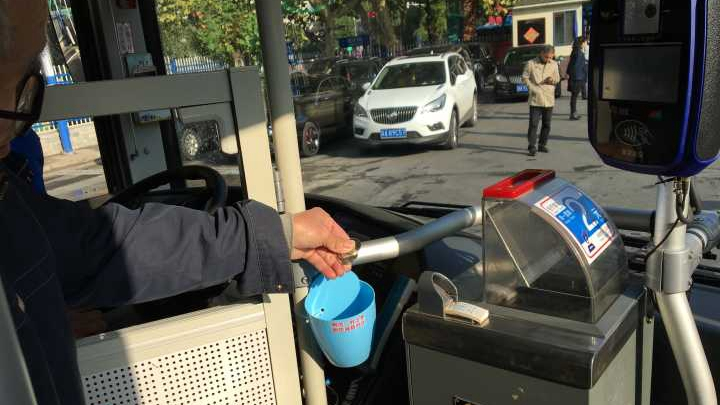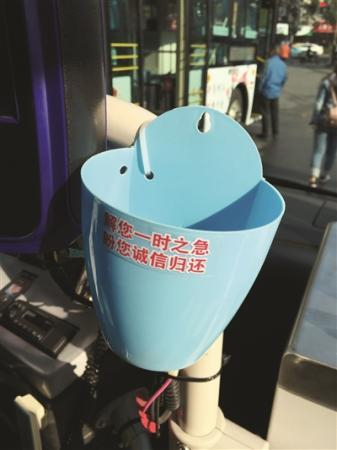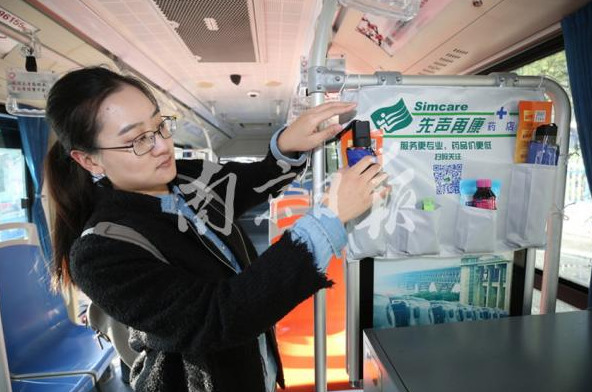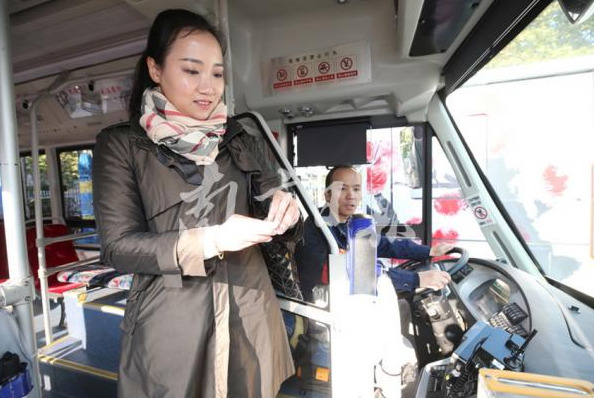
Nanjing City in east China's Jiangsu Province has offered boxes filled with coins on two bus lines for those who forget to bring their money to buy tickets. Passengers can borrow coins from the box, and return the change the next time they take the bus.
For those carrying large denominations of yuan, those coins could also be used as change.

The petty cash box hangs over the self-service coin device. /Photo via Yangtse Evening Post
Self-service ticketing buses are widespread in almost all major Chinese cities. A fare box is installed at the front door of the bus where passengers get on. Riding the bus usually costs 1 yuan (about 0.14 US dollars) for a one-way trip.
Although local commuters can pay for the bus fare with tap-and-go cards easily, not having change on hand would still be an embarrassing experience for sightseers and residents who hop on a bus occasionally.

A passenger borrows an umbrella from the emergency package. /Photo via Nanjing Daily
Buses on the two lines are also equipped with some emergency supplies, such as cotton buds, alcohol, Band-Aids and umbrellas. With no supervision, the whole scheme works on the honor system.

A passenger puts a coin into the bus's fare box. /Photo via Nanjing Daily
The initiative has been widely lauded by local citizens as well as netizens after it was unveiled on social media. “The idea of preparing spare coins is considerate and it should be promoted nationwide,” user @Yunliangzi commented on China's Twitter-equivalent Weibo.
“I was in a rush to a meeting but told to get off the bus once because I didn't have any change and passengers around me couldn't lend me coins either. People rarely carry cash now, not to mention small change,” another user, @Jingluo, commented, pointing to the necessity of the coin box.
In recent years, the public transportation sector has appeared to be a new battleground for Chinese mobile payment players.
Although buses in some cities like Beijing still have a conductor selling tickets, more and more young people are inclined to pay transportation fares via QR codes and save the trouble of digging for change or waiting in long queues.
By 2017, mobile payment had been accepted on all public buses in Hangzhou, east China's Zhejiang Province, making the city the first in China to do so and consolidating its reputation as a mobile application pioneer.
(Source:CGTN)






